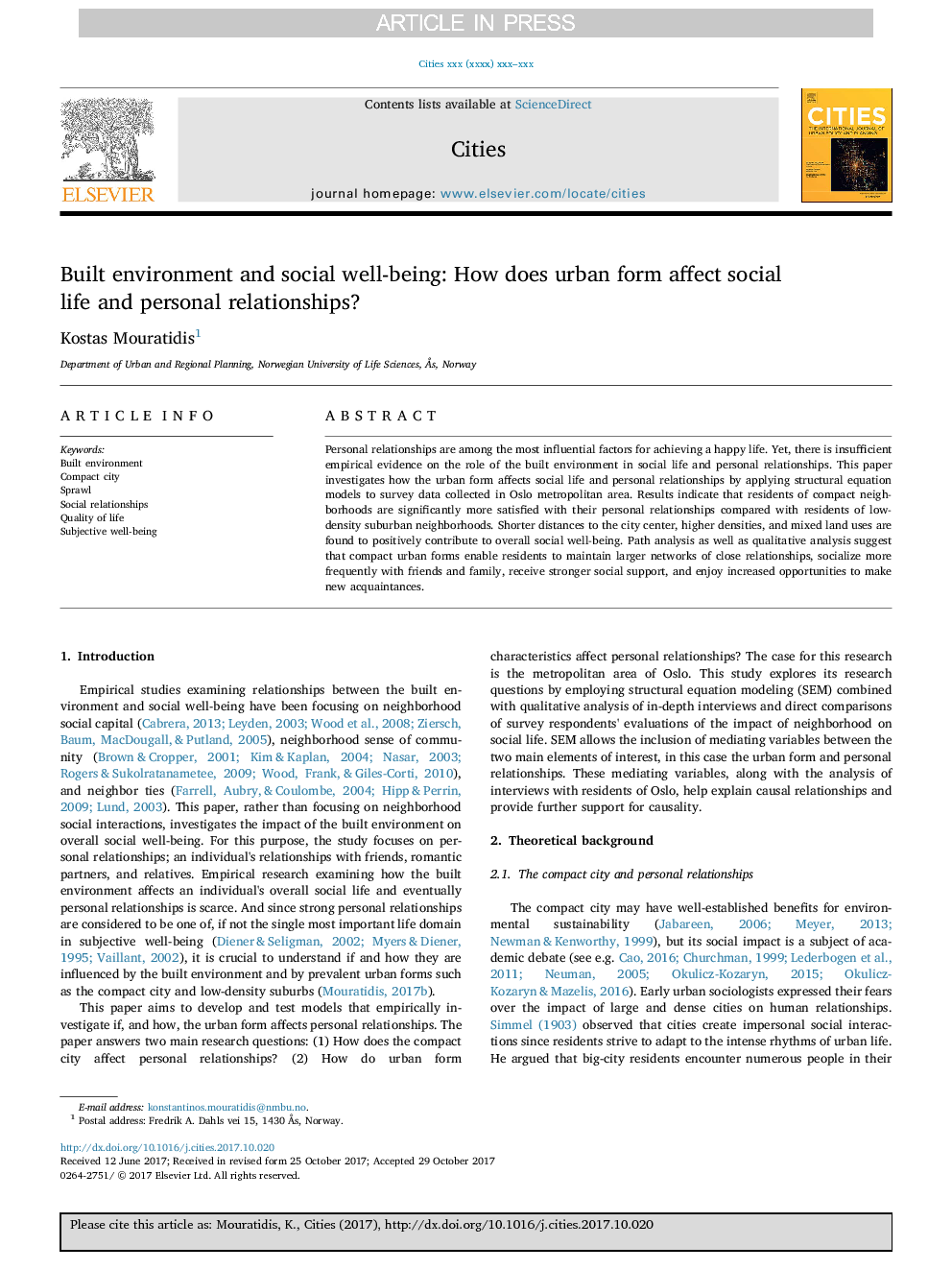ترجمه فارسی عنوان مقاله
محیط ساخته شده و رفاه اجتماعی: چگونه شکل شهری بر زندگی اجتماعی و روابط شخصی تاثیر می گذارد؟
عنوان انگلیسی
Built environment and social well-being: How does urban form affect social life and personal relationships?
| کد مقاله | سال انتشار | تعداد صفحات مقاله انگلیسی |
|---|---|---|
| 127954 | 2018 | 14 صفحه PDF |
منبع

Publisher : Elsevier - Science Direct (الزویر - ساینس دایرکت)
Journal : Cities, Volume 74, April 2018, Pages 7-20
ترجمه چکیده
روابط شخصی یکی از عوامل تاثیرگذار برای دستیابی به یک زندگی شاد است. با این وجود، شواهد تجربی کافی در مورد نقش محیط ساخته شده در زندگی اجتماعی و روابط شخصی وجود ندارد. این مقاله به بررسی نحوه شکل شهری بر زندگی اجتماعی و روابط شخصی با تأثیر مدل های معادلات ساختاری برای بررسی داده های جمع آوری شده در منطقه شهری اسلو می پردازد. نتایج نشان می دهد که ساکنان محله های جمع و جور با روابط شخصی خود در مقایسه با ساکنان محله های حومه کم تراکم روبرو هستند. فاصله کوتاهتر به مرکز شهر، تراکم بیشتر و همچنین استفاده از مخلوط زمین به طور مثبت به رفاه عمومی کمک می کند. تجزیه و تحلیل مسیر و همچنین تجزیه و تحلیل کیفی نشان می دهد که شکل های جمع و جور شهری ساکنین را قادر می سازد شبکه های بزرگتری از روابط نزدیک را برقرار کنند، با دوستان و خانواده بیشتر ارتباط برقرار کنند، حمایت اجتماعی قویتری دریافت کنند و از فرصت های بیشتری برای آشنای جدید لذت ببرند.

